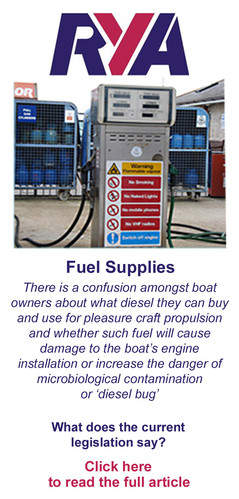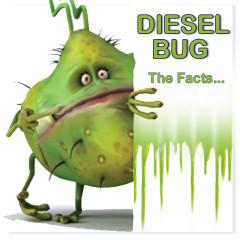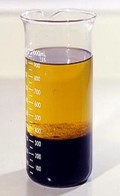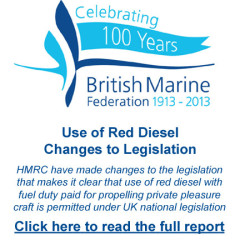
We understand that you probably have loads of questions with regards Fuel Polishing....we hope that the following helps; but please don’t hesitate to contact us should you have any further queries.
What is fuel polishing?
Fuel polishing is the process of removing water and particulates from fuel to ensure that the fuelquality remains in-line with fuel specifications. Ideally, fuel should have an ISO particle code of 18/16/13 and a dissolved water content no greater than 200 parts per million. There should be no free or emulsified water present.
What is the risk of Diesel Bug?
The risk of diesel bug has increased since the widespread
introduction of ULSD and the removal of sulphur from diesel – sulphur is poison to most bacteria and fungi.
It starts if water starts to accumulate in a fuel tank. Water being heavier than diesel oil, it sinks to the bottom of the tank. The microbes then start to gather at the interface between the water and the fuel. Living in the water layer, they start to draw nutrients from the fuel and begin to multiply. Their growth rate can depend upon conditions, such as ambient temperature, but as they grow they start to form clumps of bio-mass – this biomass is very efficient at blocking fuel filters
What sort of damage can Diesel Bug cause?
In extreme cases of infestation, the bug can spread around the fuel system and storage tank and start to form a bio-film. This is where layers of billions of microbes attach themselves to fuel tank walls and other surfaces. This can be a further problem because some microbes excrete acids which will quickly erode the fuel tanks walls
Is Diesel Bug a new phenomenon?
Whilst diesel bug is not a new phenomenon - it’s been a known problem in the marine industry for many years - the changes to fuel formulations now make it a risk for anyone storing diesel, or gas oil, for long periods of time. This makes it a particular concern for applications such as standby generators, fire pumps etc.
Does Fuel Polishing Work on all fuel?
Fuel polishing works to remove contaminants and water in DIESEL FUEL ONLY
Can a generator be used while Fuel Polishing?
Yes. Diesel fuel stays in the tank. The only thing removed is the contaminants
How often should Fuel Polishing be performed?
If you have standing fuel, and if no ‘on tank’ fuel polishing system is fitted, then it’s recommended that fuel should be polished every 6 months.
Can Gasoline be polished?
NO! We do not recommend polishing Gasoline at all. With gasoline’s low flash-point and the ethanol similar to the weight of water, polishing gasoline will cause more of a disadvantage than advantage.
We add additives do we still need to polish our Fuel?
Yes, absolutely. Additives can slow down the aging process of fuel, however, it does not remove contaminates in its entirety.
Does Fuel Polishing Work?
Absolutely! Bad diesel can have severe and damaging effects on engines; it has been proven that regular polishing can greatly reduce the likelihood of this damage occurring.
Will fuel polishing remove all fuel tank contamination?
Fuel polishing will remove free and emulsified water as well as solid particles (size dependent upon the filter element being used). If there is microbial contamination in the tank any free floating biomass will be removed. However, if the tank is badly contaminated and a biofilm has formed – a biofilm is a colony of microbes that have adhered to the tank surfaces – fuel polishing may be only partially effective. In such instances tank cleaning will be required.
Are the certain cases where the fuel can’t be polished?
Yes. On rare occasions we have found that fuel was beyond repair.
We are very happy to discuss any potential requirements and to answer any further questions you might have. Please don’t hesitate to drop us a line or give us a call
Contact us
07716 851901
News
Diesel Bug is the term used to describe the bacteria and fungi that can grow within a diesel fuel tank.
It doesn’t grow in every fuel tank – many fuel users may never encounter it - but if conditions are right and it does get established, it can be a very serious problem.
To learn more about diesel bug, how it can occur, the damage it can cause, as well as preventative measures, please visit our FAQ section.







